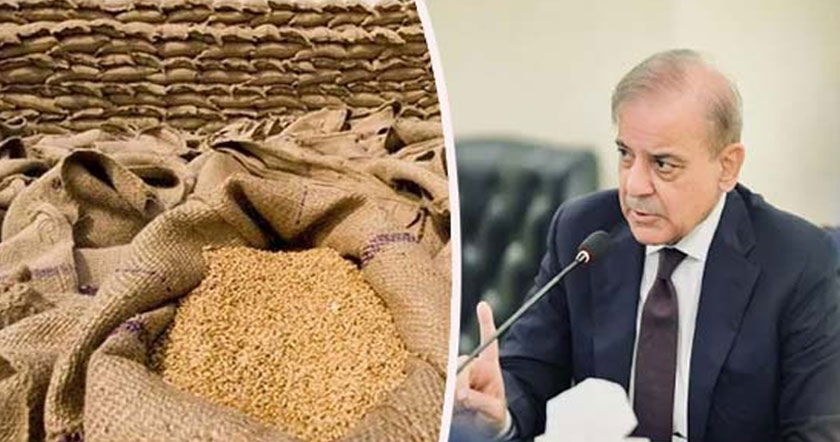India's new worry: PoK & an Ocean of instability
By: Tejas Patel | 2011-04-22 13:41:40
The recent reports of the presence of Chinese troops in the Pakistan Occupied Kashmir (PoK) have set the alarm bells ringing in New Delhi.
Despite its neutrality on the Kashmir issue, Beijing is now openly supporting Pakistan and is establishing its economic and political influence in PoK and Gilgit-Baltistan.
Indian strategic thinkers believe that the Chinese presence in PoK can be a long term part of their plan to connect the Karakoram highway with Gwadar.
The Chinese activities in Pakistan and other areas surrounding India are a part of the bigger events shaping up in the Indian Ocean region.
US Assistant Secretary of State Robert Blake, speaking at a seminar recently, talked about a book written by Robert D Kaplan. The book, Blake said is indispensable reading and in fact is a must read in the South Asia Desk of the State Department.
Kaplan in his thought provoking book 'Monsoon: The Indian Ocean and the Future of American Power' emphasises his central thesis that the Indian Ocean region will be the epicentre of global conflict in the 21st century.
The author of the book argues that the Indian Ocean region will be the principal theatre of conflict among the United States, China, and India.
Kaplan's book has triggered an intense and incisive debate in the US strategic policy circles.
The dominant view of US strategic thinkers is pivoted on the looming importance of Indian Ocean as a region of competitive interests. Therefore, the waters stretching from the Red Sea to Indonesia, which is the expanse of the Indian Ocean is being considered as the principal theatre of conflict among the world's established and ascendant powers.
An online magazine, 'OnEarth' published by America's most influential environmental group-Natural Resources Defense Council-says the conflict will be for control of fossil fuels, minerals, and other natural resources, and the infrastructure to important and export them (things like oil and gas pipeline, deepwater ports, and navies to protect critical shipping lines).
George Black, executive editor of 'OnEarth', gives an indication of American strategic viewpoint by postulating that the "unprecedented demand for energy from India and China will also be a major driving factor of the conflict."
In the contextual reference of Indian Ocean emerging as the world's next big theatre of conflict, the increasing Chinese military presence and activities in Pakistan acquires a compelling and new threat perception. Chinese assistance in building Pakistan's Gwadar port is well known. But a news report in the venerable 'Guardian' newspaper suggests that a new Great Game is being played out in Gwadar, in Pakistan's Balochistan province.
When the project to develop Gwadar port began, it was hoped that it will provide a vital link between Pakistan and the vast energy reserves of Central Asia. But today, after its completion in 2008, Gwadar looks like a ghost town. Despite the heavy Chinese investment in the project the Pakistan Government, owing to huge pressure from the US, leased out the port to Singapore government three years ago
The port is strategically located near the Straits of Hormuz and was vital for China to access the sea for its western provinces. Given is proximity to Iran, the US saw Gwadar as a potential military base and Indian security planners were not happy to see Chinese having a safe passage to the Arabian Sea. There were also fears that it might become a naval outpost of China.
The local people who were hopeful that the port would have brought benefits are a dejected lot and blame the new Great Game for their misfortunes.
The quest for resources between India and China is not limited to this region alone. India, on its part, is hoping to win access to the strategic port of Chabahar, located in southwest Iran.
Indian officials are urging Iran to expedite work at the port, which is barely 72 km from Gwadar.
According to them, Iran is dragging its feet over the project because of its anxieties about the Sistan-Baluchestan region where they are trying to put down a Sunni insurgency.
India, according to latest reports, is willing to put more money into the port project as it will also give Afghanistan an alternative supply route and not be dependent on Karachi.
Courtesy: Indian Defence Review
By: Tejas Patel | 2011-04-22 13:41:40
The recent reports of the presence of Chinese troops in the Pakistan Occupied Kashmir (PoK) have set the alarm bells ringing in New Delhi.
Despite its neutrality on the Kashmir issue, Beijing is now openly supporting Pakistan and is establishing its economic and political influence in PoK and Gilgit-Baltistan.
Indian strategic thinkers believe that the Chinese presence in PoK can be a long term part of their plan to connect the Karakoram highway with Gwadar.
The Chinese activities in Pakistan and other areas surrounding India are a part of the bigger events shaping up in the Indian Ocean region.
US Assistant Secretary of State Robert Blake, speaking at a seminar recently, talked about a book written by Robert D Kaplan. The book, Blake said is indispensable reading and in fact is a must read in the South Asia Desk of the State Department.
Kaplan in his thought provoking book 'Monsoon: The Indian Ocean and the Future of American Power' emphasises his central thesis that the Indian Ocean region will be the epicentre of global conflict in the 21st century.
The author of the book argues that the Indian Ocean region will be the principal theatre of conflict among the United States, China, and India.
Kaplan's book has triggered an intense and incisive debate in the US strategic policy circles.
The dominant view of US strategic thinkers is pivoted on the looming importance of Indian Ocean as a region of competitive interests. Therefore, the waters stretching from the Red Sea to Indonesia, which is the expanse of the Indian Ocean is being considered as the principal theatre of conflict among the world's established and ascendant powers.
An online magazine, 'OnEarth' published by America's most influential environmental group-Natural Resources Defense Council-says the conflict will be for control of fossil fuels, minerals, and other natural resources, and the infrastructure to important and export them (things like oil and gas pipeline, deepwater ports, and navies to protect critical shipping lines).
George Black, executive editor of 'OnEarth', gives an indication of American strategic viewpoint by postulating that the "unprecedented demand for energy from India and China will also be a major driving factor of the conflict."
In the contextual reference of Indian Ocean emerging as the world's next big theatre of conflict, the increasing Chinese military presence and activities in Pakistan acquires a compelling and new threat perception. Chinese assistance in building Pakistan's Gwadar port is well known. But a news report in the venerable 'Guardian' newspaper suggests that a new Great Game is being played out in Gwadar, in Pakistan's Balochistan province.
When the project to develop Gwadar port began, it was hoped that it will provide a vital link between Pakistan and the vast energy reserves of Central Asia. But today, after its completion in 2008, Gwadar looks like a ghost town. Despite the heavy Chinese investment in the project the Pakistan Government, owing to huge pressure from the US, leased out the port to Singapore government three years ago
The port is strategically located near the Straits of Hormuz and was vital for China to access the sea for its western provinces. Given is proximity to Iran, the US saw Gwadar as a potential military base and Indian security planners were not happy to see Chinese having a safe passage to the Arabian Sea. There were also fears that it might become a naval outpost of China.
The local people who were hopeful that the port would have brought benefits are a dejected lot and blame the new Great Game for their misfortunes.
The quest for resources between India and China is not limited to this region alone. India, on its part, is hoping to win access to the strategic port of Chabahar, located in southwest Iran.
Indian officials are urging Iran to expedite work at the port, which is barely 72 km from Gwadar.
According to them, Iran is dragging its feet over the project because of its anxieties about the Sistan-Baluchestan region where they are trying to put down a Sunni insurgency.
India, according to latest reports, is willing to put more money into the port project as it will also give Afghanistan an alternative supply route and not be dependent on Karachi.
Courtesy: Indian Defence Review



































